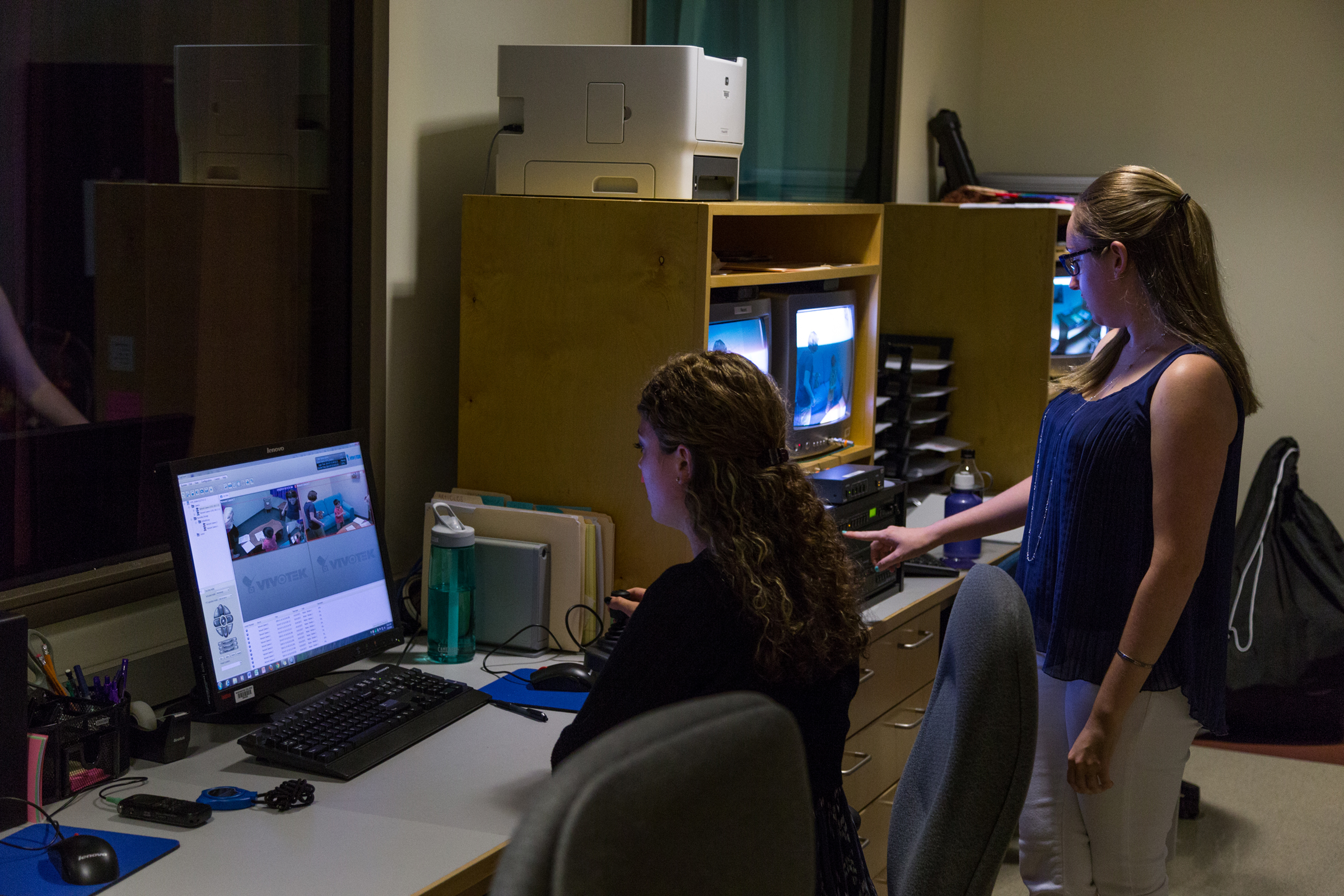
Behavioral Neuroscience
There are three courses of study for WC psychology majors to choose from: Experimental Psychology, a concentration in Behavioral Neuroscience (BN), and a concentration in Clinical/Counseling (CC). These courses of study are designed to prepare students for entry level careers and for post-graduate study in psychology, social work, business, and medicine/health.
The concentration in behavioral neuroscience is designed for students with a focused interest in the biological bases of behavior and thought. The concentration is well suited for students that are contemplating professional or research careers in medicine, pharmaceuticals, veterinarian medicine, animal science, neurology, and neuroscience. Yet, the courses in the concentration are open to all psychology majors and even to other majors. Because BN concentrators have additional laboratory requirements beyond those needed for the psychology major, at graduation all students who complete the BN track receive a Bachelors of Science (BS) degree and a note on their transcript that they successfully completed the BN concentration.
FAQs
Neuroscience is an extremely large discipline that encompasses an extremely wide variety of scientists and scientific interests. However, all neuroscientists are interested in the brain and how the brain works. Some neuroscientists are only interested on learning about the basic physiology of the brain and of brain tissue. These neuroscientists may be interested in such questions as: What cellular processes enable neurons to communicate with each other via neurotransmitters? But behavioral neuroscientists are interested in the relationship between the physiological processes that occur in the brain and the behavior of an organism. The Behavioral Neuroscientist is likely to be interested in the answer to the question: What types of altered communication between neurons is responsible for the dramatic changes in behavior and cognition that are observed in people with bipolar depression? This focus on the behavior of the entire organism is what is distinctive about behavioral neuroscience.
Yes.
The facts are that neuroscience or biopsychology concentrations are among the most demanding undergraduate programs offered. There is a significant degree of overlap between the requirements for the BN concentration and the courses that comprise most pre-med programs. It is very likely that no matter how capable a student you may be you will be challenged at some point in the curricullum. Before you decide to tackle the BN concentration you should discuss your plans with your undergraduate advisor and your BN advisor.
Just as every psychology must do, each student in the BN concentration must complete an empirical research project during their senior year. The topic of this thesis should be related to a topic in behavioral neuroscience and must be approved in advance by the BN advisor. The BN concentration has been designed to equip you with all the skills you should require to complete the thesis. Very often your thesis project may develop from collaborative projects that you began with one of the faculty. Many students presented their thesis at conferences and some have even published their thesis. Here are just a few of the recent BN thesis projects that have been completed by seniors:
- Children’s Event Related Potentials and their Relationship with Computer Abilities.
- Acute Aluminum Toxicity in Advanced Aged Mice
- The Effects of Lead Exposure on Rat performance in an Eight-arm Radial Maze and Possible Implications for ADHD in Humans.
- Anxiety and EEG: Using a Brain Atlas to Document Anxiety in the Temporal Lobes.
- The Effects of Sodium Salicylate on Sexual Arousal in Adult Male Mice (Mus domesticus).
- The Effects of Anandamide on the Ultrasonic Vocalizations of 10 Day-old Infant Mice.
- The Effects of Medication on ERP Characteristics for Attention Deficit Disorder Individuals.
- The Effects of Prenatal Cocaine on Physical and Social Development of Infant Mice.
- The Effects of Antioxidants on Recovery from Excitotoxin Induced Brain Injury: Hippocampal Lesions and Spatial Learning in Mice.
The answer is absolutely yes!
While the concentration requires careful planning and course sequencing, there is ample opportunity to complete all the course requirement for graduation and for the BN concentration in four years. Some students take summer courses to accelerate their progress through the major or allow them greater flexibility in course selection during the regular school year. To insure that you are on track you should consult with your faculty advisor and with the faculty BN advisor sometime prior to the spring semester of your second year.
The BN concentration is offered through the psychology department, so you must major in psychology to obtain the B.S. in BN. However, if you decide to major in another discipline, you may still enroll in BN courses. In fact, just as we encourage students in the BN concentration to sample from a wide selection of course electives, we encourage other majors to sample from the BN courses.
Yes.
Students in the concentration are encouraged to spend at least one summer either in an internship or conducting research. There is a small summer research program at WC and similar opportunities for our students at other institutions are available. These opportunities are usually very competitive, but the rewards can be exceptional. In just the last three years, students have obtained summer internship and/or research positions at the National Institutes of Mental Health (NIMH), the National Institute of Drug Abuse (NIDA), the University of Maryland, and the University of South Carolina.
Three faculty in the psychology department teach the majority of required psychology courses in the BN concentration. These faculty are Dr. Gibson (BN Advisor), Dr. Weil, and Dr. Kochli. You can learn more about them and more about their research interests by visiting the faculty page.
Plenty!
Clinical Neuropsychology, Medicine, Pharmacology, Animal Science & Veterinary Science, Neuroscience, and many others.
Careers in most of the fields listed above require a post-graduate (M.S., Ph.D., Psy.D., or M.D.) degree. However, many many entry level positions in medical and or pharmaceutical research are available to individuals with a B.S. degree. With your liberal arts background you may also be interested in a career as a science journalist!
Follow these links to learn more about the field of neuroscience:
- Association of Neuroscience Departments and Programs
- Neuroscience on the Internet
- Faculty for Undergraduate Neuroscience (FUN)
- Society for Neuroscience
Follow this link for more information about WC and the admission process.
Meet Your Professors

Dr. Cindy Gibson
Associate Professor of PsychologyPSY 111. General Psychology I
PSY 210. Biopsychology
PSY 309. Statistics and Research Design II
PSY 317. Principles of Sensation and Perception
PSY 410. Neuroscience Research Methods
Meet Prof. Gibson
Dr. Audrey Weil
Assistant Professor of PsychologyPSY 111. General Psychology I
PSY 205. Drugs and Behavior
PSY 309. Statistics and Research Design II
PSY 316. Cognitive Neuroscience
PSY 410. Neuroscience Research
Meet Prof. Weil
Dr. Dan Kochli
Visiting Assistant Professor of PsychologyPSY 111. General Psychology I
PSY 210. Biopsychology
PSY 305. Psychopharmacology
PSY 313. Learning and Applied Behavioral Analysis
Meet Prof. Kochli
Make sure you're on the right track
Review the course checklist for the Behavioral Neuroscience Concentration or visit the college catalog to learn more about the academic requirements.
Course Checklist